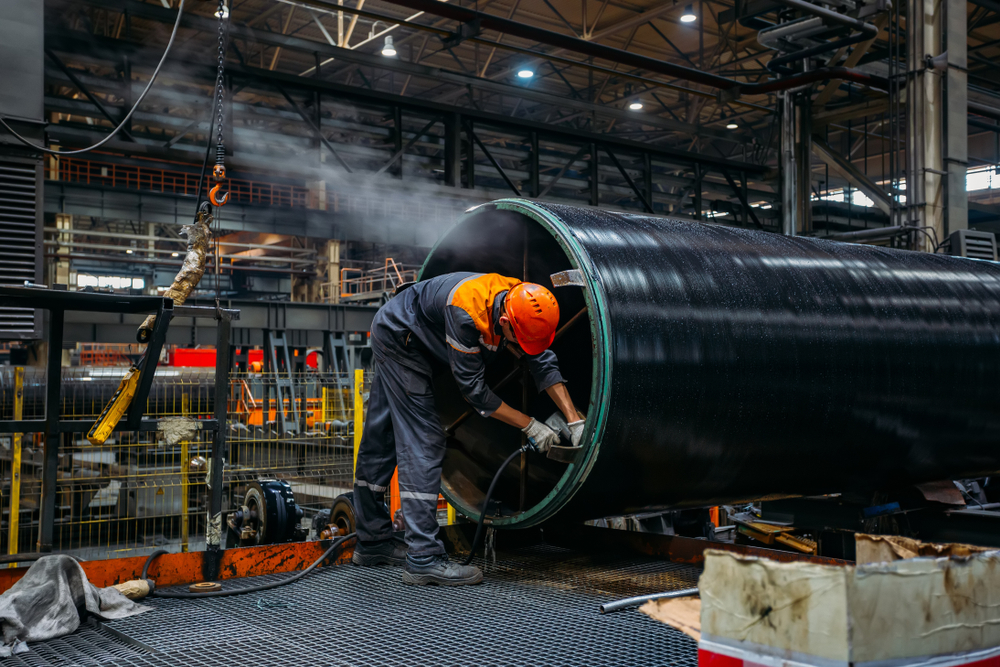
electing a pipeline coating may seem like a simple task; however, failing to select the right one for specific environmental and operational conditions can impact the life and performance of the coating and the asset, costing a significant amount of unnecessary time and money.
Degradation of pipelines can occur in a variety of ways, including: galvanic corrosion, erosion, exposure to pH, water and oxygen concentration, temperature, and microbiologically influenced corrosion (MIC). Therefore, it is critical to select the right coating for your pipeline during the initial design stage. One way to ensure the appropriate coating is selected is to engage a professional to assess your project’s requirements and make knowledge-based recommendations.
Mario Silvestro, Product Manager at Canusa-CPS, distributed in Australia by Universal Corrosion Coatings (UCC), believes it is important to understand the risks of choosing the wrong coating and the impact it can have on an asset in order to make a good decision.
Mr Silvestro said that the key considerations when selecting a pipeline coating include:
Environmental and safety regulations
Application conditions
Performance of the coating within the environment and operating conditions
Effectiveness of the coating over the design/service life of the asset
Overall economics
Selecting the wrong coating happens when the consideration of one of these key factors greatly supersedes the rest, or when any one factor is not considered in detail.
“For example, there may be a high-performance coating available which is used for extremely high temperatures and performs in harsh environments, but can only be applied within very narrow and strict application parameters, which elevates the risk of non-conformance during application and eventual repairs in both the long and short term,” Mr Silvestro said.
Getting It Right – A Checklist of What to Consider
In order to maximise reliability and avoid spending time and money fixing degrading coatings, it is important to consider which factors will impact the long-term integrity of the pipeline.
Professionals, such as UCC, offer expert knowledge with respect to these factors to ensure projects’ specific requirements are met.
According to Mr. Silvestro, the minimum six key factors will assist in selecting the appropriate coating for buried pipelines:
Surface preparation
Soil stress resistance
Ambient conditions expected (such as surrounding temperature, moisture and soil chemistry)
Impact and handling resistance
Backfill materials and time
Resistance to cathodic disbondment and compatibility with any existing or other coating being used
Mr. Silvestro mentioned that a coating’s expected service life can degrade when used in conditions which are outside its scope of design. As a result, this can accelerate the aging process, so it is important to select a coating that is able to withstand all the relevant conditions it will experience over its lifetime. Aging coating alone contributes to approximately 15 per cent of coating failures.
Select a Proven Solution
According to Mr. Silvestro, selecting an option that is proven to be successful is the best way to avoid premature degradation and save time and money.
A 2016 case study using Canusa-CPS ScarGuard®, a solution provided in Australia by UCC, showed there is potential to save more than $1 million if a coating like ScarGuard® is applied from the start.
“During this case study there was a horizontal directional drill application in which the mainline coating had failed a pull-through installation. The traditional method to repair the pipeline would have cost the client over $1.6 million, which included high manpower and equipment costs, but also would include delay charges, higher re-drilling costs and additional cathodic protection (CP). These additional charges could have all been avoided if the right coating was selected from the start,” Mr. Silvestro said.
David Anderson, Sales and Marketing Manager at UCC, said that another key factor in making a coating decision is the field service that is available. With dedicated customer support, products are likely to perform better for longer.
“An additional benefit to UCC’s high-quality products, including Canusa-CPS, is the support given by our field service team, which trains and educates clients on how to properly apply coating products,” Mr. Anderson said.
With access to expert knowledge in selecting the most appropriate coating as well as applying and maintaining it, the lifetime and integrity of the asset can be extended. Moreover, the performance can be improved, giving businesses a peace of mind on top of time and cost savings.